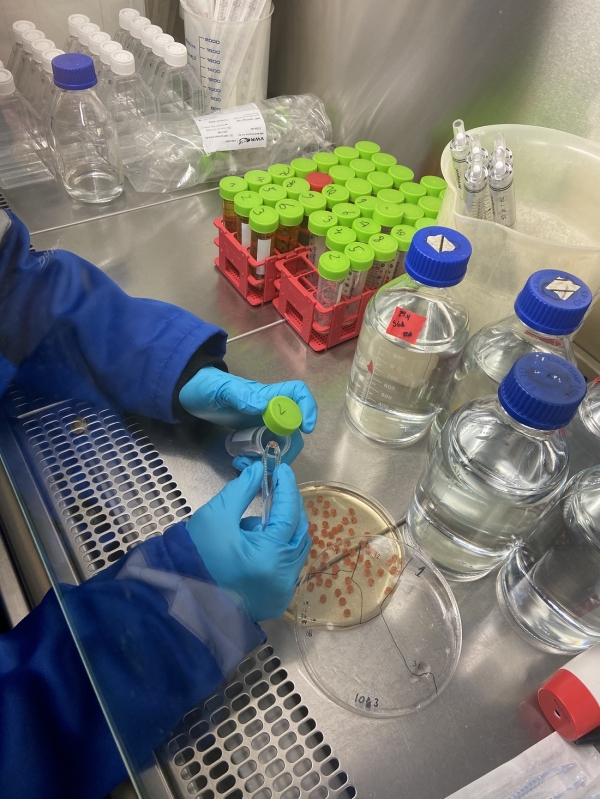Researchers, including from NTNU, are breeding bacteria-free fish fry. This pursuit is more important than you might think.
“We’re managing to keep the fry bacteria-free for up to 12 weeks after the eggs hatch,” says Ingrid Bakke. She is a professor at NTNU’s Department of Biotechnology and Food Science.
This step has now helped researchers on the trail to figuring out how bacteria and fish affect each other. Understanding their interaction could one day also lead to a method for preventing the fish from becoming ill and, although still a long way off, could be good news for the fishing industry, our future food supply – and not least for the fish themselves.
The researchers have studied how bacteria affect the growth, genes and mucous membranes of the fish.
Read more at Norwegian University of Science and Technology
Photo: The NTNU group has developed an efficient, smart method that works for salmon eggs and fry. Credit: Alexander Fiedler, NTNU


